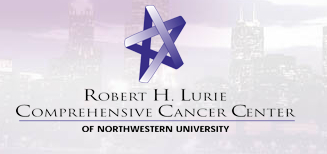Combination Chemotherapy and Rituximab in Treating Patients With Newly Diagnosed AIDS-Related B-Cell Non-Hodgkin's Lymphoma
| Status: | Completed |
|---|---|
| Conditions: | Lymphoma, Lymphoma |
| Therapuetic Areas: | Oncology |
| Healthy: | No |
| Age Range: | 18 - 120 |
| Updated: | 6/7/2018 |
| Start Date: | January 2007 |
| End Date: | September 2011 |
A Phase II Trial of Doxil, Rituximab, Cyclophosphamide, Vincristine, and Prednisone (DR-COP) in Patients With Newly Diagnosed AIDS-Associated B-Cell Non-Hodgkin's Lymphoma
RATIONALE: Drugs used in chemotherapy work in different ways to stop the growth of cancer
cells, either by killing the cells or by stopping them from dividing. Monoclonal antibodies,
such as rituximab, can block cancer growth in different ways. Some find cancer cells and help
kill them or carry cancer-killing substances to them. Others interfere with the ability of
cancer cells to grow and spread. Giving combination chemotherapy together with rituximab may
kill more cancer cells.
PURPOSE: This phase II trial is studying how well giving combination chemotherapy together
with rituximab works in treating patients with newly diagnosed AIDS-related B-cell
non-Hodgkin's lymphoma.
cells, either by killing the cells or by stopping them from dividing. Monoclonal antibodies,
such as rituximab, can block cancer growth in different ways. Some find cancer cells and help
kill them or carry cancer-killing substances to them. Others interfere with the ability of
cancer cells to grow and spread. Giving combination chemotherapy together with rituximab may
kill more cancer cells.
PURPOSE: This phase II trial is studying how well giving combination chemotherapy together
with rituximab works in treating patients with newly diagnosed AIDS-related B-cell
non-Hodgkin's lymphoma.
OBJECTIVES:
Primary
- Determine the complete response rate (complete response and complete response
unconfirmed) in patients with newly diagnosed, AIDS-related B-cell non-Hodgkin's
lymphoma treated with doxorubicin hydrochloride liposome, rituximab, cyclophosphamide,
vincristine, and prednisone (DR-COP).
- Determine the duration of response (relapse-free survival) in patients treated with this
regimen.
- Determine the median survival time of patients treated with this regimen.
- Determine rate of bacterial, fungal, and opportunistic infections in patients treated
with this regimen.
Secondary
- Determine, preliminarily, the relationship between MDR-1 expression in tumor tissue and
response to therapy in patients treated with this regimen.
- Determine, preliminarily, any relationship between response and survival and BCL-2
expression in tumor tissue in patients treated with this regimen.
- Determine any relationship between development of bacterial, fungal, and/or
opportunistic infections and baseline CD4 lymphocyte count, HIV-1 RNA level, and
quantitative immunoglobulin levels, or changes in quantitative immunoglobulin levels
over time in patients treated with this regimen.
- Compare the results of positron emission tomography (PET) scanning with traditional CT
scans in predicting response to therapy in these patients.
- Examine the relationship between chemotherapeutic drug levels and receipt of specific
antiretroviral and/or anti-infective medications in these patients.
- Examine the mortality and the causes of death in patients treated with this regimen.
- Determine event-free survival at 1 year.
OUTLINE: This is a nonrandomized, multicenter study.
Patients receive doxorubicin hydrochloride liposome IV over 90 minutes, rituximab IV over 5-7
hours, cyclophosphamide IV over 1 hour, and vincristine IV over 1-2 minutes on day 1 and oral
prednisone on days 1-5. Patients also receive filgrastim (G-CSF), sargramostim (GM-CSF), or
pegfilgrastim beginning on day 3 and continuing until blood counts recover. Treatment repeats
every 21-28 days for up to 8 courses in the absence of disease progression or unacceptable
toxicity.
Patients undergo laboratory/biomarker studies at baseline and after every 2 courses of
chemotherapy. Tissue is examined by immunohistochemistry for BCL-2, Ki67, and MDR-1, along
with other markers.
After completion of study treatment, patients are followed periodically for 3 years.
PROJECTED ACCRUAL: A total of 44 patients will be accrued for this study.
Primary
- Determine the complete response rate (complete response and complete response
unconfirmed) in patients with newly diagnosed, AIDS-related B-cell non-Hodgkin's
lymphoma treated with doxorubicin hydrochloride liposome, rituximab, cyclophosphamide,
vincristine, and prednisone (DR-COP).
- Determine the duration of response (relapse-free survival) in patients treated with this
regimen.
- Determine the median survival time of patients treated with this regimen.
- Determine rate of bacterial, fungal, and opportunistic infections in patients treated
with this regimen.
Secondary
- Determine, preliminarily, the relationship between MDR-1 expression in tumor tissue and
response to therapy in patients treated with this regimen.
- Determine, preliminarily, any relationship between response and survival and BCL-2
expression in tumor tissue in patients treated with this regimen.
- Determine any relationship between development of bacterial, fungal, and/or
opportunistic infections and baseline CD4 lymphocyte count, HIV-1 RNA level, and
quantitative immunoglobulin levels, or changes in quantitative immunoglobulin levels
over time in patients treated with this regimen.
- Compare the results of positron emission tomography (PET) scanning with traditional CT
scans in predicting response to therapy in these patients.
- Examine the relationship between chemotherapeutic drug levels and receipt of specific
antiretroviral and/or anti-infective medications in these patients.
- Examine the mortality and the causes of death in patients treated with this regimen.
- Determine event-free survival at 1 year.
OUTLINE: This is a nonrandomized, multicenter study.
Patients receive doxorubicin hydrochloride liposome IV over 90 minutes, rituximab IV over 5-7
hours, cyclophosphamide IV over 1 hour, and vincristine IV over 1-2 minutes on day 1 and oral
prednisone on days 1-5. Patients also receive filgrastim (G-CSF), sargramostim (GM-CSF), or
pegfilgrastim beginning on day 3 and continuing until blood counts recover. Treatment repeats
every 21-28 days for up to 8 courses in the absence of disease progression or unacceptable
toxicity.
Patients undergo laboratory/biomarker studies at baseline and after every 2 courses of
chemotherapy. Tissue is examined by immunohistochemistry for BCL-2, Ki67, and MDR-1, along
with other markers.
After completion of study treatment, patients are followed periodically for 3 years.
PROJECTED ACCRUAL: A total of 44 patients will be accrued for this study.
DISEASE CHARACTERISTICS:
- Histologically or cytologically confirmed AIDS-related B-cell non-Hodgkin's lymphoma
(NHL), including any of the following subtypes:
- Grade III follicular large cell lymphoma
- Diffuse large B-cell lymphoma
- Immunoblastic lymphoma
- Plasmablastic lymphoma
- Primary effusion lymphoma
- Previously untreated disease
- Any stage disease
- CD20 positive disease
- Must have documented HIV infection
- Documentation may be by serology (enzyme-linked immunosorbent assay, western
blot), culture, or quantitative polymerase chain reaction or branched DNA assays
- Prior documentation of HIV seropositivity allowed
- Measurable or nonmeasurable disease
- Currently receiving effective highly active anti-retroviral therapy
- No primary CNS lymphoma, including parenchymal brain or spinal cord lymphoma
- No presence of leptomeningeal disease (positive cerebrospinal fluid for lymphoma) or
presence of metastatic disease to brain, in terms of any mass lesion
PATIENT CHARACTERISTICS:
- ECOG performance status (PS) 0-2 OR Karnofsky PS 50-100%
- Life expectancy ≥ 2 months
- Absolute granulocyte (neutrophil) count ≥ 1,000/mm³ (unless secondary to lymphomatous
involvement of bone marrow)
- Platelet count ≥ 75,000/mm³ (unless secondary to lymphomatous involvement of bone
marrow or due to HIV-related thrombocytopenia)
- Bilirubin ≤ 2.0 mg/dL (unless elevated secondary to lymphomatous involvement of liver
or biliary system or due to other HIV medications [e.g., indinavir, tenofavir, or
atazanavir])
- SGOT ≤ 5 times upper limit of normal
- Creatinine ≤ 2.0 mg/dL OR creatinine clearance ≥ 60 mL/min (unless secondary to renal
involvement by lymphoma)
- LVEF normal by MUGA or echocardiogram
- Not pregnant or nursing
- Negative pregnancy test
- Fertile patients must use effective contraception during and for 6 months after
completion of study treatment
- No other malignancy, except nonmelanoma skin cancer, carcinoma in situ of the cervix,
or Kaposi's sarcoma that does not require systemic therapy
- No serious, ongoing, nonmalignant disease or infection that would preclude study
compliance, in the opinion of the investigator
- No history of cutaneous or mucocutaneous reactions, or diseases in the past, due to
any cause, severe enough to cause hospitalization or an inability to eat or drink for
≥ 2 days
- No acute, intercurrent infection that would preclude study treatment
- Patients with Mycobacterium avium are eligible
- No cardiovascular problems, including any of the following:
- Myocardial infarction within the past 6 months
- New York Heart Association class II-IV heart failure
- Uncontrolled angina
- Severe uncontrolled ventricular arrhythmias
- Clinically significant pericardial disease
- ECG evidence of acute ischemic or active conduction system abnormalities.
- No shortness of breath at rest
- Arterial PO_2 ≥ 70 or pulse oximeter-derived O_2 saturation ≥ 94% on room air (unless
due to lymphomatous involvement of the lungs)
- Able to comply with study and provide adequate informed consent
PRIOR CONCURRENT THERAPY:
- See Disease Characteristics
- At least 4 weeks since prior major surgery (except diagnostic surgery)
- At least 12 months since prior rituximab unless it was only given for indications
other than the treatment of aggressive lymphoma
- No prior cytotoxic chemotherapy or radiotherapy for this lymphoma
- Concurrent radiotherapy, with or without steroids, for emergency conditions
secondary to lymphoma (i.e., CNS tumor or cord compression) allowed
- No zidovudine or zidovudine-containing regimen (including Combivir® or Trizivir®)
during and for 2 months after completion of chemotherapy
- Concurrent erythropoietin or filgrastim (G-CSF) allowed
- Growth factor therapy must be discontinued ≥ 24 hours prior to study entry
We found this trial at
14
sites
Click here to add this to my saved trials
Beth Israel Deaconess Medical Center Beth Israel Deaconess Medical Center (BIDMC) is one of the...
Click here to add this to my saved trials
1300 Morris Park Avenue
Bronx, New York 10461
Bronx, New York 10461
718.430.2302

Albert Einstein Cancer Center at Albert Einstein College of Medicine The Albert Einstein Cancer Center...
Click here to add this to my saved trials
675 N Saint Clair St # 21-100
Chicago, Illinois 60611
Chicago, Illinois 60611
(312) 695-1156

Robert H. Lurie Comprehensive Cancer Center at Northwestern University The cancer center was first established...
Click here to add this to my saved trials
72 East Concord St.
Boston, Massachusetts 02118
Boston, Massachusetts 02118
617-638-4173

Boston University Cancer Research Center
Click here to add this to my saved trials
Case Comprehensive Cancer Center The Case Comprehensive Cancer Center (Case CCC) based at Case Western...
Click here to add this to my saved trials
Click here to add this to my saved trials
Click here to add this to my saved trials
Click here to add this to my saved trials
1514 Jefferson Highway
New Orleans, Louisiana 70121
New Orleans, Louisiana 70121
888.624.7637

Ochsner Cancer Institute at Ochsner Clinic Foundation The Ochsner Cancer Institute at Ochsner Clinic Foundation...
Click here to add this to my saved trials
Memorial Sloan Kettering Cancer Center Memorial Sloan Kettering Cancer Center — the world's oldest and...
Click here to add this to my saved trials
Click here to add this to my saved trials
Click here to add this to my saved trials
Virginia Mason Medical Center Established in 1920, Virginia Mason began as an 80-bed hospital with...
Click here to add this to my saved trials



